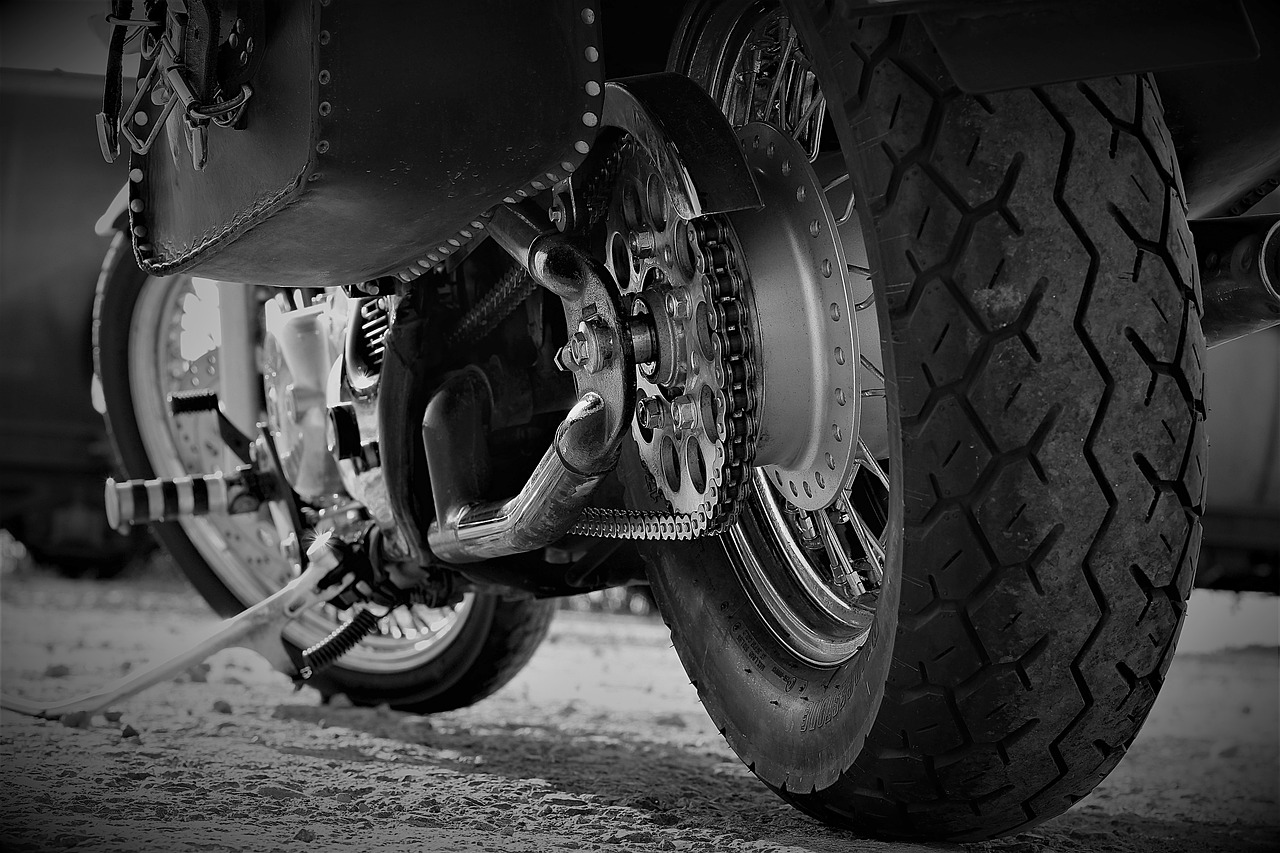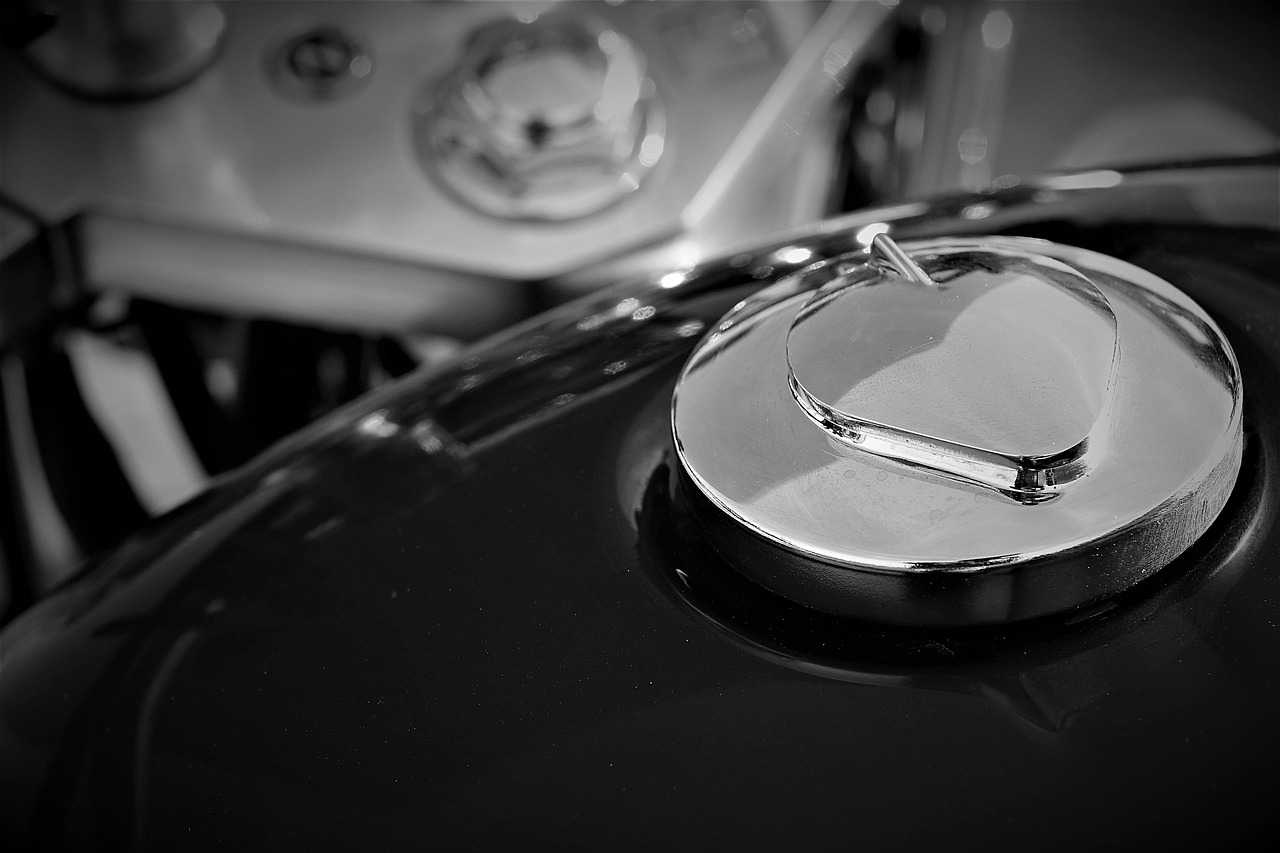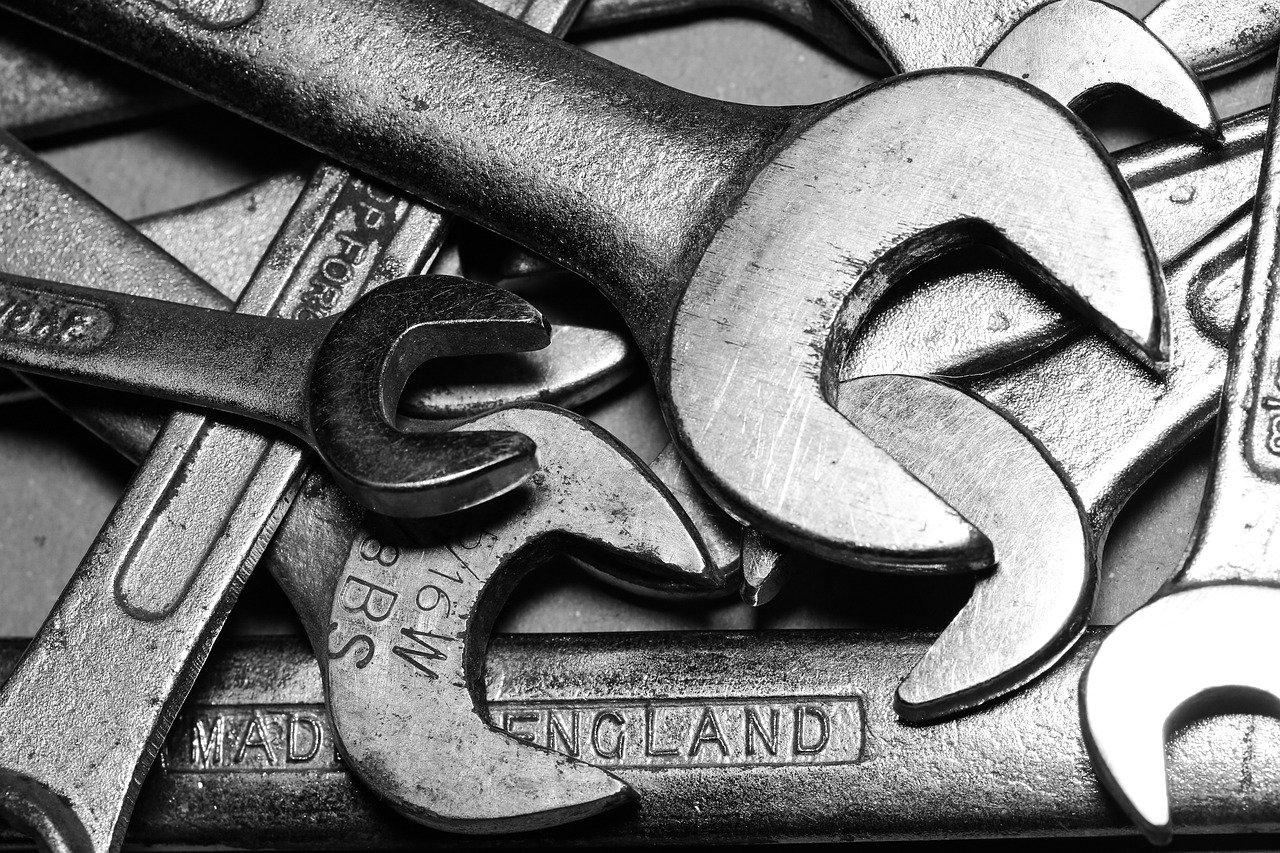The Honda Accord is renowned for its durability and reliability, making it a popular choice among car buyers. This article delves into the factors that contribute to the longevity of the Honda Accord, offering insights into maintenance practices, real-world experiences, and common issues that may arise over time. Understanding these elements can help current and prospective owners appreciate the lifespan of this iconic vehicle.
The average lifespan of a Honda Accord typically ranges from 200,000 to 300,000 miles with proper maintenance. Many owners report their cars lasting well beyond this range, especially when they adhere to routine service schedules. This impressive longevity makes the Accord a reliable investment for those seeking a long-term vehicle.
Several key factors influence how long a Honda Accord can last:
- Driving Habits: Gentle driving and avoiding aggressive acceleration can significantly extend the life of the vehicle.
- Maintenance Practices: Regular oil changes, tire rotations, and timely repairs are crucial for keeping the Accord running smoothly.
- Environmental Conditions: Cars driven in harsh climates or on rough roads may experience accelerated wear and tear.
Aggressive driving, including rapid acceleration and hard braking, can lead to increased wear on the engine and brakes. In contrast, adopting a smoother driving style can reduce stress on the vehicle’s components, thereby enhancing its lifespan.
To maximize the lifespan of a Honda Accord, owners should prioritize the following maintenance tasks:
- Regular Oil Changes: Keeping the engine lubricated is essential for its health. Following the manufacturer’s recommendations for oil change intervals is vital.
- Tire Maintenance: Regularly checking tire pressure and rotating tires can prevent uneven wear and improve fuel efficiency.
- Brake Inspections: Ensuring brakes are in good condition is crucial for safety and performance.
Many Honda Accord owners share positive experiences regarding the longevity of their vehicles. Numerous testimonials indicate that with diligent care, these cars can easily surpass 250,000 miles. Such accounts provide valuable insights for prospective buyers and current owners alike.
As with any vehicle, certain issues may become prevalent as the Honda Accord ages. Here are some common concerns:
- Transmission Problems: Early signs of transmission issues can include slipping gears or delayed engagement. Addressing these symptoms promptly can prevent costly repairs.
- Electrical Issues: Problems with the electrical system, such as malfunctioning lights or battery drain, are not uncommon. Regular checks can help maintain functionality.
When compared to other sedans in its class, the Honda Accord often ranks highly in terms of reliability and longevity. Its reputation for durability makes it a standout choice for those prioritizing a long-lasting vehicle.
In summary, the Honda Accord’s longevity is influenced by various factors, including driving habits and maintenance practices. By prioritizing regular upkeep and adopting gentle driving techniques, owners can enjoy the benefits of a vehicle that not only lasts but performs exceptionally well over time.

What is the Average Lifespan of a Honda Accord?
The Honda Accord is renowned for its reliability and longevity, making it a popular choice among car buyers. Understanding the average lifespan of this vehicle is crucial for potential buyers and current owners alike. With proper maintenance and care, a Honda Accord can often exceed 200,000 miles, with many owners reporting even higher mileage. This impressive lifespan is a testament to Honda’s commitment to quality engineering and durability.
The average lifespan of a Honda Accord typically ranges from 200,000 to 300,000 miles, depending on various factors such as maintenance, driving conditions, and individual driving habits. This range is based on numerous owner reports and industry data, highlighting the Accord’s reputation as a long-lasting vehicle.
Several factors can significantly impact how long a Honda Accord lasts. Understanding these factors is essential for maximizing the lifespan of the vehicle.
- Driving Habits: Gentle driving can help extend the life of your Accord. Avoiding aggressive acceleration and hard braking can reduce wear and tear on critical components.
- Maintenance Practices: Regular maintenance, including timely oil changes and tire rotations, is vital for keeping the vehicle in optimal condition.
- Environmental Conditions: Cars driven in harsh climates or on rough roads may experience increased wear, affecting their longevity.
Driving habits play a crucial role in determining how long your Honda Accord will last. For instance, aggressive driving can lead to faster wear on the engine and transmission. Conversely, adopting smooth driving techniques can significantly enhance the vehicle’s durability.
Regular maintenance is key to extending the lifespan of your Honda Accord. Following the manufacturer’s recommended service schedule can help prevent potential issues and keep the vehicle running smoothly.
- Oil Changes: Regular oil changes are essential for engine health. Using the right oil and changing it as recommended can improve performance and longevity.
- Tire Care: Maintaining proper tire pressure and rotating tires regularly can prevent uneven wear and enhance safety.
Many Honda Accord owners report their vehicles lasting well beyond the 200,000-mile mark. These testimonials often highlight the reliability and durability of the Accord, reinforcing its status as a dependable choice for drivers.
As with any vehicle, certain issues may arise as the Honda Accord ages. Being aware of these problems can help owners address them proactively:
- Transmission Problems: Some owners report transmission issues as the vehicle ages. Early detection and maintenance can prevent costly repairs.
- Electrical Issues: Electrical problems can affect various systems in the Accord. Understanding common electrical issues can help maintain functionality.
When compared to other sedans, the Honda Accord often ranks highly in terms of reliability and longevity. Its solid engineering and reputation for durability make it a strong competitor in its class.
In conclusion, the Honda Accord is a vehicle that can provide years of reliable service with proper care and maintenance. Its average lifespan, often exceeding 200,000 miles, combined with real-world owner experiences, underscores its value as a long-term investment for those seeking a dependable vehicle.

Factors Influencing Honda Accord Longevity
The longevity of a Honda Accord is not merely a matter of luck; it is influenced by several critical factors that every owner should consider. Understanding these elements can help maximize the lifespan of this popular sedan, ensuring that it remains reliable and efficient for years to come.
Several key factors can significantly impact how long a Honda Accord lasts. These include:
- Driving Habits: The way you drive plays a crucial role in your vehicle’s durability. Aggressive driving, which includes rapid acceleration and hard braking, can lead to increased wear and tear on the engine and brakes. In contrast, adopting a more calm and consistent driving style can help prolong the life of your vehicle.
- Maintenance Practices: Regular maintenance is essential for any vehicle, and the Honda Accord is no exception. Following the manufacturer’s recommended maintenance schedule, including oil changes, tire rotations, and brake inspections, can significantly extend the lifespan of your car.
- Environmental Conditions: The environment in which you drive also affects your Accord’s longevity. Factors such as extreme temperatures, humidity, and road conditions can contribute to wear and tear. For instance, driving in areas with heavy snowfall can lead to rust and corrosion, while high temperatures can strain the engine.
Your driving habits can either enhance or diminish your vehicle’s lifespan. Frequent short trips can be particularly hard on engines, as they may not reach optimal operating temperatures, leading to incomplete combustion and increased deposits. Conversely, longer, steady drives allow the engine to perform at its best, promoting longevity.
Driving at excessive speeds can cause significant strain on your Honda Accord. High-speed driving increases the likelihood of overheating and can lead to premature wear on tires and brakes. Maintaining a moderate speed not only enhances safety but also contributes to the overall health of the vehicle.
Employing smooth acceleration and braking techniques can reduce stress on your vehicle’s components. This gentle approach minimizes the risk of mechanical failures and can lead to a longer lifespan. Drivers should focus on gradual acceleration and gentle braking to enhance their Accord’s durability.
Regular maintenance is vital for keeping a Honda Accord running smoothly. By adhering to a consistent maintenance schedule, owners can prevent minor issues from escalating into major repairs. Here are some essential maintenance practices:
- Oil Changes and Engine Care: Regular oil changes are critical for engine health. Following the manufacturer’s recommendations ensures that the engine runs efficiently and lasts longer.
- Tire Maintenance and Replacement: Proper tire maintenance, including rotation and inflation, is crucial for vehicle safety and longevity. Neglecting tires can lead to premature wear on other components.
As Honda Accords age, certain issues may become prevalent. Identifying these common problems can help owners address them before they lead to more significant repairs. Common concerns include:
- Transmission Problems: Transmission issues can be a concern for aging Honda Accords. Being aware of early signs can help owners take action before extensive damage occurs.
- Electrical Issues: Electrical problems can affect various systems in a Honda Accord. Understanding common electrical issues and their solutions can help maintain vehicle functionality.
By recognizing these factors and implementing best practices, Honda Accord owners can significantly enhance their vehicle’s lifespan, ensuring that it remains a reliable mode of transportation for many miles to come.
Driving Habits and Their Impact
When it comes to the longevity of your Honda Accord, driving habits play a crucial role. The way you drive can either enhance or diminish the lifespan of your vehicle. This section delves into how specific driving behaviors impact the wear and tear on your Accord.
Aggressive driving, characterized by rapid acceleration, hard braking, and frequent lane changes, can lead to significant strain on your Honda Accord. This style of driving not only increases fuel consumption but also accelerates wear on essential components such as the engine, brakes, and tires. According to automotive experts, vehicles driven aggressively can experience a reduction in lifespan by as much as 30%.
Many drivers may not realize that frequent short trips can be detrimental to their vehicle’s health. Short trips often prevent the engine from reaching its optimal operating temperature, which is necessary for burning off harmful deposits. Over time, this can lead to issues such as:
- Oil contamination – Short trips do not allow the oil to circulate properly, leading to sludge buildup.
- Battery drain – Frequent short trips can prevent the battery from fully charging, leading to a shorter lifespan.
- Increased wear on components – The engine and other parts experience more wear during cold starts.
In contrast, adopting calm and consistent driving habits can significantly extend the life of your Honda Accord. Smooth acceleration and deceleration reduce stress on the vehicle’s components, promoting better fuel efficiency and longevity. Here are some benefits of gentle driving:
- Less wear on tires – Gradual acceleration and braking help maintain tire health.
- Improved fuel efficiency – Consistent driving speeds can enhance miles per gallon.
- Longer engine life – Gentle driving allows the engine to operate more efficiently, reducing the risk of overheating and other issues.
Driving at high speeds can exacerbate the wear and tear on your Honda Accord. The faster you drive, the more stress is placed on the engine, tires, and brakes. This increased strain can lead to:
- Higher fuel consumption – Speeding often results in poorer fuel economy.
- Increased braking distance – Higher speeds require more time and distance to stop safely.
- Potential for overheating – Engine components may not cool down effectively at high speeds.
To maximize the lifespan of your Honda Accord, focus on adopting smooth driving techniques. Here are some practical tips:
- Anticipate traffic flow – Look ahead and adjust your speed gradually to avoid sudden stops.
- Use cruise control – On long highway drives, cruise control can help maintain a steady speed.
- Minimize rapid acceleration – Gradually increase your speed instead of flooring the gas pedal.
In conclusion, understanding the impact of your driving habits on your Honda Accord is vital for maximizing its lifespan. By adopting calm, consistent driving practices and being mindful of short trips, you can significantly enhance the durability and reliability of your vehicle.
How Does Speed Affect Longevity?
When it comes to vehicle longevity, one important factor that often gets overlooked is driving speed. The speed at which you drive can have a profound impact on your car’s overall lifespan, particularly for models like the Honda Accord. Understanding this relationship is crucial for anyone looking to maximize their vehicle’s durability.
Driving at high speeds increases the stress on various components of a vehicle. This stress can lead to accelerated wear and tear, particularly on the engine and tires. At higher speeds, the engine works harder to maintain performance, which can lead to increased fuel consumption and potential overheating. Moreover, the tires experience greater friction and heat buildup, leading to a higher likelihood of premature wear.
Adopting aggressive driving habits—such as rapid acceleration and hard braking—can be detrimental to your Honda Accord’s engine health. These habits not only strain the engine but also affect the transmission system and other critical components. By driving more calmly and consistently, you can significantly reduce the stress placed on your vehicle, potentially extending its lifespan.
Yes, smooth acceleration and braking are essential for maintaining your vehicle’s health. Gentle driving helps to distribute the load on the engine and brakes more evenly, which can lead to a longer lifespan for these components. Furthermore, this driving style can enhance fuel efficiency, resulting in lower operating costs over time.
Speed also has a direct impact on tire longevity. At higher speeds, tires heat up more quickly, which can lead to a decrease in their lifespan. Additionally, the increased centrifugal force can cause tires to wear unevenly, leading to premature replacements. Regular tire maintenance, such as rotation and proper inflation, becomes even more critical if you frequently drive at high speeds.
Over time, consistently driving at high speeds can lead to significant long-term effects on your vehicle. These may include:
- Engine Overheating: Continuous high-speed driving can lead to overheating, which may cause engine damage.
- Increased Maintenance Costs: The need for more frequent repairs and replacements adds to the overall cost of vehicle ownership.
- Reduced Resale Value: A vehicle that has been subjected to high-speed driving may have a lower resale value due to perceived wear and tear.
To ensure your Honda Accord lasts as long as possible, consider adopting a more conservative driving style. This includes obeying speed limits, accelerating gently, and maintaining a safe following distance. By doing so, you not only enhance your vehicle’s longevity but also contribute to safer driving conditions for everyone on the road.
Importance of Smooth Acceleration and Braking
The in driving cannot be overstated, especially when it comes to enhancing the durability of your vehicle, such as the Honda Accord. Many drivers may underestimate how their driving habits can significantly impact the wear and tear on their cars. By adopting a more gentle approach to driving, you can not only improve your vehicle’s performance but also extend its lifespan.
When you accelerate and brake smoothly, you reduce stress on various components of your vehicle. This includes the engine, transmission, and braking system. Frequent hard accelerations and abrupt stops can lead to premature wear, increasing the likelihood of costly repairs. For instance, a study showed that vehicles driven with aggressive habits can experience a decrease in lifespan by as much as 30% compared to those driven gently.
- Improved Fuel Efficiency: Smooth acceleration and braking can enhance fuel economy, allowing you to save money at the pump.
- Less Wear on Components: Components such as brakes and tires last longer when you drive gently.
- Enhanced Safety: Smooth driving contributes to better control of the vehicle, reducing the risk of accidents.
To incorporate smooth driving techniques into your routine, consider the following tips:
1. Anticipate Stops: Look ahead and begin to slow down well before a stop sign or red light.2. Gradual Acceleration: Instead of flooring the gas pedal, gradually increase your speed.3. Use Cruise Control: On highways, use cruise control to maintain a steady speed.4. Avoid Rapid Lane Changes: Signal your intentions early and change lanes smoothly.
Many Honda Accord owners have reported significant improvements in their vehicle’s longevity and performance by adopting smooth driving habits. For instance, drivers who focus on gentle starts and gradual stops often find that they can easily surpass the 200,000-mile mark without major issues. This not only reflects the Accord’s engineering but also highlights the impact of driver behavior on vehicle health.
To maximize your Honda Accord’s lifespan, it is essential to avoid certain driving habits:
- Aggressive Driving: Rapid acceleration and hard braking can lead to increased wear on the engine and brakes.
- Frequent Short Trips: Short trips can prevent your engine from reaching optimal operating temperature, which can lead to engine buildup.
- Ignoring Warning Signs: Pay attention to any unusual sounds or warning lights, as these can indicate underlying issues.
In conclusion, the extends beyond just comfort; it plays a crucial role in maintaining the health and longevity of your Honda Accord. By adopting a gentle driving style, you can enhance your vehicle’s durability and enjoy a more reliable driving experience for years to come.
Maintenance Practices to Extend Lifespan
To ensure that your Honda Accord remains in optimal condition, regular maintenance is essential. This not only enhances performance but also contributes significantly to the vehicle’s longevity. Here, we will explore key maintenance practices that every Accord owner should prioritize.
- Regular Oil Changes: One of the most critical aspects of vehicle maintenance is changing the oil at regular intervals. It is recommended to follow the manufacturer’s guidelines, typically every 5,000 to 7,500 miles, depending on the type of oil used. Fresh oil lubricates engine components, reduces wear, and helps maintain engine efficiency.
- Tire Care: Proper tire maintenance is vital for safety and performance. Regularly check tire pressure and ensure they are inflated to the recommended levels. Additionally, rotating tires every 5,000 to 7,500 miles can promote even wear, extending their lifespan and ensuring better handling.
- Brake Inspections: The braking system is crucial for safety. Inspect brake pads and rotors regularly, and replace them as needed. Squeaking or grinding noises can indicate wear, and addressing these issues promptly can prevent more costly repairs.
- Fluid Checks: Besides engine oil, other fluids such as coolant, transmission fluid, and brake fluid require regular checks. Keeping these fluids at appropriate levels prevents overheating and ensures smooth operation of various systems.
- Battery Maintenance: A well-maintained battery is essential for reliable starts and overall vehicle function. Check battery terminals for corrosion and clean them if necessary. If the battery is more than three years old, consider having it tested regularly.
- Filter Replacements: Air filters and fuel filters should be replaced according to the service schedule. A clean air filter improves engine performance and fuel efficiency, while a clean fuel filter ensures proper fuel flow to the engine.
In addition to these practices, it’s important to keep an eye on unusual sounds or warning lights on the dashboard. Addressing minor issues quickly can prevent them from escalating into major problems.
Moreover, consider keeping a detailed maintenance log. This not only helps in tracking service history but also aids in identifying patterns that could indicate underlying issues.
Ultimately, a proactive approach to maintenance can significantly enhance the lifespan of your Honda Accord. By prioritizing these practices, you can enjoy a reliable, efficient, and long-lasting vehicle.
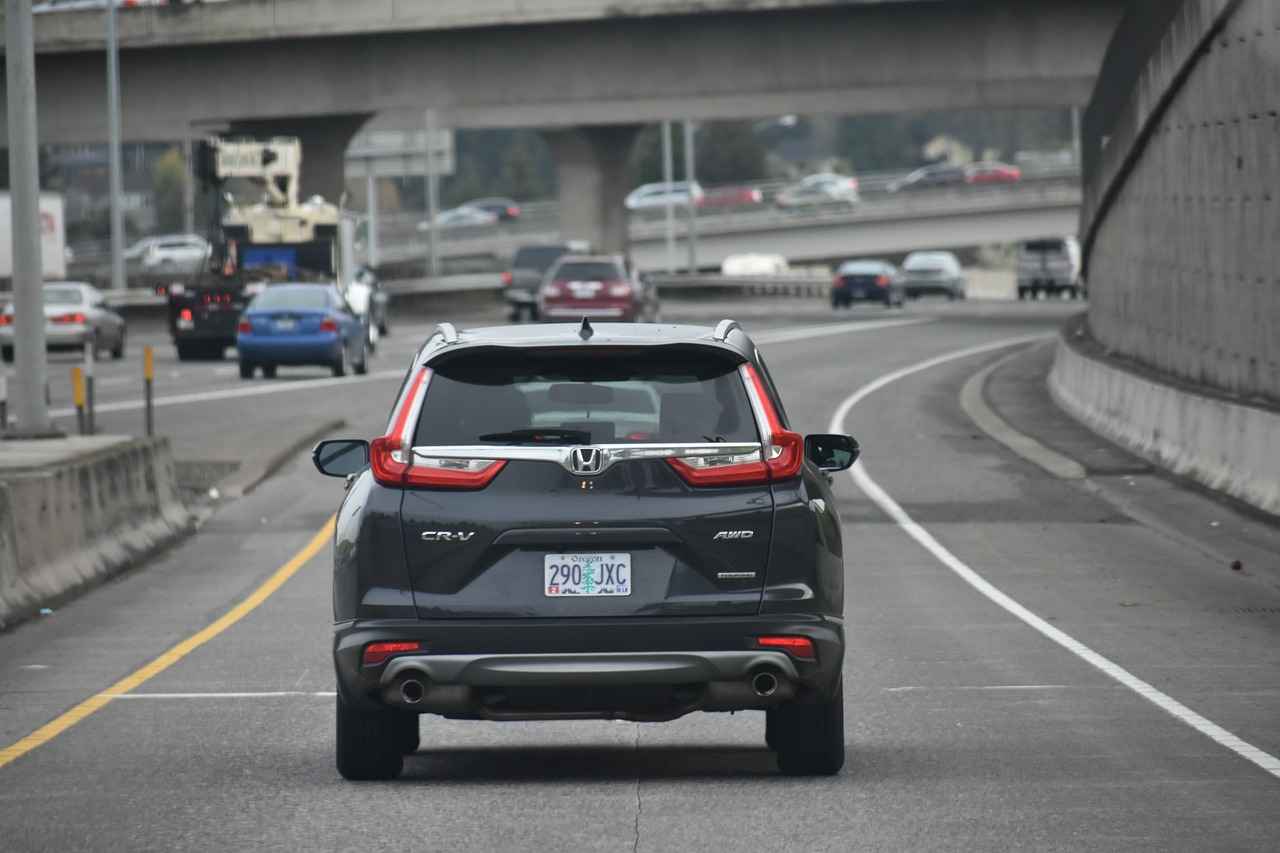
What Maintenance Should Be Prioritized?
When it comes to keeping your vehicle in top-notch condition, prioritizing maintenance tasks is essential for ensuring longevity and optimal performance. Understanding which services are crucial can help car owners make informed decisions that significantly impact their vehicle’s lifespan.
Many vehicle owners often wonder, what maintenance tasks should I focus on to extend my car’s life? The answer lies in a few key areas that, when addressed regularly, can lead to substantial improvements in the vehicle’s longevity.
- Regular Oil Changes: One of the most critical maintenance tasks is changing the engine oil at recommended intervals. Fresh oil lubricates engine components, reducing wear and tear. Most manufacturers recommend changing the oil every 5,000 to 7,500 miles, but it’s essential to consult your owner’s manual for specific guidelines.
- Tire Care: Proper tire maintenance is vital. This includes regular rotation, alignment checks, and ensuring proper inflation. Neglected tires can lead to uneven wear and compromise safety. Aim to rotate your tires every 5,000 to 7,500 miles and check tire pressure monthly.
- Brake System Inspection: The braking system is crucial for safety. Regular inspections can help identify worn-out pads or low brake fluid levels before they become serious issues. It’s advisable to have your brakes checked at least once a year.
- Fluid Levels: Regularly checking and topping off essential fluids such as coolant, transmission fluid, and brake fluid can prevent overheating and ensure smooth operation. Make it a habit to check these fluids during routine maintenance.
- Battery Health: A well-maintained battery is essential for reliable vehicle performance. Regularly inspect battery terminals for corrosion and ensure a secure connection. Most batteries last between 3 to 5 years, so keep an eye on the age of your battery.
By focusing on these key maintenance areas, vehicle owners can significantly enhance the longevity of their cars. However, it’s equally important to recognize that preventive maintenance goes beyond just following a checklist. It involves being proactive and addressing potential issues before they escalate.
Many drivers may ask, how does preventive maintenance actually affect my car’s lifespan? The answer lies in the principle of catching problems early. For instance, a small oil leak, if left unaddressed, can lead to severe engine damage over time. Regular inspections and timely repairs can save owners from costly fixes and extend the life of the vehicle.
Numerous studies and surveys indicate that vehicles that undergo regular maintenance often exceed their expected lifespans. For example, many Honda Accord owners report their vehicles lasting well beyond 200,000 miles due to diligent maintenance practices. These real-world experiences highlight the tangible benefits of prioritizing maintenance.
In summary, understanding which maintenance tasks to prioritize is essential for any car owner looking to maximize their vehicle’s lifespan. By investing time and resources into regular maintenance, you not only enhance the performance and safety of your vehicle but also ensure that it remains reliable for years to come. Remember, a little effort in maintenance can lead to significant rewards in the long run.
Oil Changes and Engine Care
Maintaining your vehicle is essential for ensuring its longevity and performance, and one of the most critical aspects of this maintenance is regular oil changes. Oil changes are not just routine tasks; they play a pivotal role in the overall health of your engine. In this section, we will delve into the importance of oil changes, the consequences of neglecting them, and best practices for keeping your engine running smoothly.
Oil serves as the lifeblood of your engine, providing lubrication, reducing friction, and helping to keep the engine cool. Over time, engine oil degrades and becomes contaminated with dirt, debris, and other particles. This degradation can lead to several issues:
- Increased Friction: Old oil loses its viscosity, which can cause increased friction between engine components.
- Overheating: Contaminated oil can lead to overheating, as it is less effective at dissipating heat.
- Engine Wear: Neglecting to change the oil can result in premature wear of engine parts, leading to costly repairs.
Following the manufacturer’s recommendations is crucial for maintaining engine health. Most manufacturers suggest changing the oil every 5,000 to 7,500 miles, but this can vary based on driving conditions and oil type. For instance:
- Synthetic Oil: If you’re using synthetic oil, you may be able to extend the interval between changes.
- Severe Driving Conditions: If you frequently drive in stop-and-go traffic, tow heavy loads, or operate in extreme temperatures, more frequent oil changes may be necessary.
Ignoring oil change intervals can lead to serious consequences:
- Engine Failure: The most severe outcome of neglecting oil changes is complete engine failure, which often requires expensive repairs or even a full engine replacement.
- Lower Resale Value: A well-maintained vehicle retains its value better than one that has been poorly cared for.
To ensure your engine remains healthy, consider the following best practices:
- Keep Records: Maintain a log of your oil changes, including dates and mileage, to track maintenance history.
- Use Quality Oil: Always use the oil type recommended by the manufacturer, as this is crucial for optimal engine performance.
- Check Oil Levels: Regularly check your oil levels and top off as needed between changes.
In summary, regular oil changes are vital for maintaining engine health and ensuring the longevity of your vehicle. By adhering to the manufacturer’s recommendations and practicing good maintenance habits, you can keep your Honda Accord—or any vehicle—running smoothly for years to come. Investing in routine oil changes not only protects your engine but also enhances your driving experience and preserves your investment.
Tire Maintenance and Replacement
is a vital aspect of vehicle ownership that is often overlooked. Proper maintenance not only ensures the safety of the vehicle but also enhances its overall performance and longevity. Neglecting tire care can lead to a myriad of issues, including uneven wear, decreased fuel efficiency, and potentially dangerous driving conditions.
Maintaining your tires is crucial for several reasons:
- Safety: Well-maintained tires provide better traction, handling, and braking performance, which are essential for safe driving.
- Fuel Efficiency: Properly inflated tires reduce rolling resistance, leading to improved fuel economy.
- Longevity: Regular maintenance can extend the life of your tires, saving you money in the long run.
To ensure your tires remain in optimal condition, consider the following maintenance practices:
- Tire Rotation: Rotating your tires every 5,000 to 7,500 miles helps promote even wear. This practice is essential as front tires typically wear faster than rear tires due to steering and braking forces.
- Inflation Checks: Regularly check tire pressure, ideally once a month. Under-inflated tires can lead to increased wear and reduced fuel efficiency, while over-inflated tires may cause a harsher ride and increased risk of blowouts.
- Tread Depth Monitoring: Keeping an eye on tread depth is crucial for maintaining traction. Use the penny test: insert a penny into the tread with Lincoln’s head facing down. If you can see all of Lincoln’s head, it’s time to replace your tires.
Being aware of the signs that indicate tire problems can prevent more significant issues:
- Vibration: If you feel unusual vibrations while driving, it could signal an alignment issue or tire imbalance.
- Cracking or Bulges: Inspect your tires regularly for visible damage, such as cracks or bulges, which could lead to a blowout.
- Excessive Wear: Uneven wear patterns can indicate alignment issues or improper inflation. Addressing these problems promptly is essential.
Knowing when to replace your tires is just as important as maintaining them. Here are some indicators:
- Tread Wear: If your tires have worn down to 2/32 of an inch or less, it’s time for a replacement.
- Age: Even if the tread looks good, tires older than six years should be inspected regularly and replaced if necessary.
- Frequent Repairs: If you find yourself frequently repairing tires, it may be more cost-effective to invest in new ones.
In conclusion, proper tire maintenance is essential for ensuring the safety and longevity of your vehicle. By regularly checking tire pressure, rotating tires, and monitoring tread depth, you can enhance your driving experience and avoid costly repairs. Remember, taking the time to care for your tires not only benefits your vehicle but also contributes to safer roads for everyone.

Real-World Experiences: How Long Do Owners Report Their Accords Last?
The Honda Accord is renowned for its reliability and longevity, making it a popular choice among car buyers. Many owners have shared their experiences, often reporting that their vehicles last well beyond 200,000 miles. This article delves into these real-world experiences, offering valuable insights into the practical longevity of the Honda Accord and what factors contribute to its impressive lifespan.
Testimonials from Honda Accord owners frequently highlight the vehicle’s durability. Many individuals have driven their Accords for over 300,000 miles with minimal issues. These accounts not only reinforce the model’s reputation but also provide prospective buyers with confidence in their purchase.
Several factors play a critical role in determining how long a Honda Accord can last. Some of the most significant include:
- Regular Maintenance: Adhering to the manufacturer’s recommended maintenance schedule is crucial. Owners who stay on top of oil changes, tire rotations, and other routine services often report higher mileage.
- Driving Conditions: Vehicles driven in favorable conditions tend to last longer. For example, those primarily used for highway driving generally experience less wear and tear than those subjected to stop-and-go city traffic.
- Owner Habits: Responsible driving habits, such as smooth acceleration and braking, can significantly enhance the vehicle’s lifespan.
Many Honda Accord owners have shared remarkable stories of their vehicles’ endurance. For instance, a user from California reported reaching 250,000 miles without any major repairs, attributing this longevity to consistent maintenance and careful driving. Another owner in New York shared that their Accord surpassed 300,000 miles with only routine services, emphasizing the importance of regular oil changes and tire care.
To achieve high mileage, owners recommend several maintenance practices:
- Regular Oil Changes: Frequent oil changes help keep the engine running smoothly and efficiently.
- Fluid Checks: Regularly checking and replacing fluids, including transmission and brake fluids, can prevent potential issues.
- Tire Care: Maintaining proper tire pressure and rotating tires can extend their life and improve overall vehicle performance.
While many Honda Accord owners enjoy extended vehicle life, some challenges may arise as the car ages. Common issues include:
- Transmission Wear: Some owners report transmission problems after reaching high mileage. Early intervention can help mitigate these issues.
- Electrical System Failures: As with many older vehicles, electrical components may begin to fail. Staying vigilant about these issues is crucial.
Based on numerous owner testimonials and experiences, it is evident that the Honda Accord can be a reliable choice for those seeking a long-lasting vehicle. With proper maintenance and care, many owners find their Accords not only meet but exceed their expectations in terms of longevity.
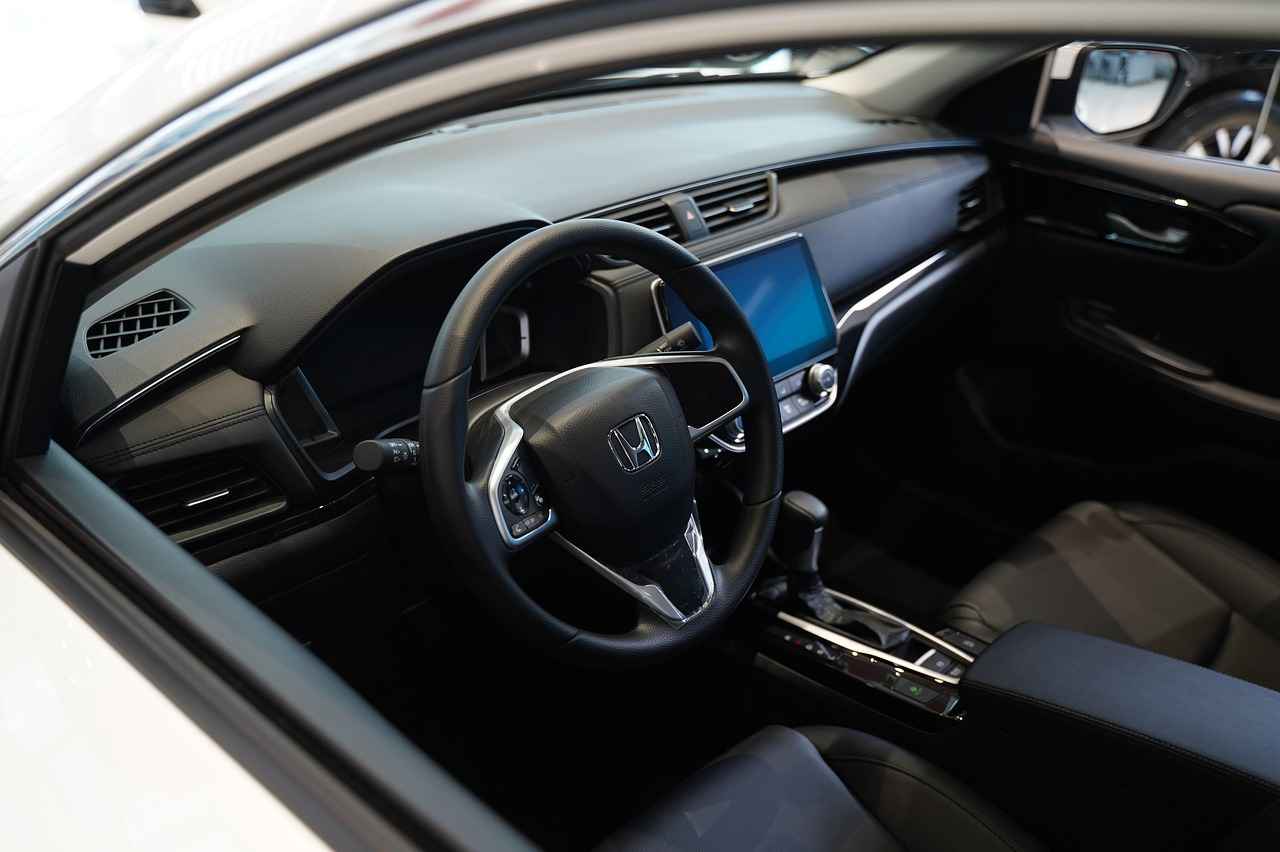
Common Issues That May Arise Over Time
As vehicles age, it is common for certain issues to arise, and the Honda Accord is no exception. Understanding these potential problems can empower owners to take proactive measures, ensuring their vehicle remains reliable and safe. This section delves into the most prevalent issues that may surface as Honda Accords accumulate mileage, along with practical tips for addressing them.
As the Honda Accord matures, several issues may become apparent. Recognizing these early signs can help owners avoid costly repairs and keep their vehicles in optimal condition.
Transmission issues are among the most serious concerns for older Honda Accords. Symptoms such as slipping gears, delayed engagement, or unusual noises can indicate a problem. Regular maintenance, including fluid changes, can help mitigate these issues. If you notice any of these signs, it is crucial to consult a professional mechanic promptly to prevent further damage.
Electrical problems can affect various systems in a Honda Accord, from the battery to the lights and infotainment system. Common symptoms include flickering dashboard lights, power window malfunctions, and inconsistent radio performance. Performing regular checks on the battery and wiring can help maintain electrical functionality.
As the Honda Accord ages, the suspension system may experience wear and tear. Signs of suspension issues include excessive bouncing, uneven tire wear, and difficulty steering. Regular inspections and timely replacements of worn components can enhance ride quality and safety.
The brake system is crucial for safety, and older Honda Accords may develop issues such as grinding noises or vibrations when braking. Regularly checking brake pads, rotors, and fluid levels is essential for maintaining effective braking performance. If any unusual symptoms arise, immediate attention is necessary.
Engine-related problems, such as decreased power or increased oil consumption, may occur as the vehicle ages. Regular oil changes and adherence to the manufacturer’s maintenance schedule can significantly enhance engine longevity. If you notice any changes in performance, it is advisable to have the engine checked by a professional.
- Regular Maintenance: Following the manufacturer’s service recommendations is crucial for preventing problems.
- Stay Informed: Keeping up with common issues specific to Honda Accords can help you anticipate and address them early.
- Consult Professionals: When in doubt, seeking the advice of a certified mechanic can save time and money in the long run.
In conclusion, while Honda Accords are known for their durability, aging vehicles can present specific challenges. By being aware of common issues and implementing preventive measures, owners can enjoy their vehicles for many miles to come.
Transmission Problems: What to Watch For
As Honda Accords age, transmission problems can become a significant concern for owners. Understanding the early signs of transmission issues is crucial for preventing extensive damage and costly repairs. This article will explore common transmission problems, their symptoms, and proactive measures that can help maintain the performance of your Honda Accord.
- Slipping Gears: If your Accord unexpectedly changes gears or slips out of gear while driving, this could indicate a transmission issue.
- Delayed Engagement: A noticeable delay when shifting from park to drive or reverse can signal transmission trouble.
- Unusual Noises: Grinding, whining, or clunking sounds while shifting gears are red flags that should not be ignored.
- Fluid Leaks: Transmission fluid is typically red or brown. If you notice puddles under your vehicle, it’s essential to check for leaks.
- Warning Lights: The check engine light or transmission warning light illuminating on your dashboard can indicate potential transmission issues.
As Honda Accords age, wear and tear on transmission components can lead to various issues. Factors contributing to transmission problems include:
- Neglected Maintenance: Regular transmission fluid changes and maintenance are essential to ensure the longevity of your vehicle’s transmission.
- Driving Habits: Aggressive driving, such as rapid acceleration and hard braking, can put extra strain on the transmission.
- Environmental Conditions: Extreme temperatures and driving conditions can accelerate wear on transmission components.
Preventative measures are key to ensuring the longevity of your Honda Accord’s transmission. Here are some tips:
- Regular Fluid Checks: Regularly inspect your transmission fluid levels and condition. If the fluid is dark or has a burnt smell, it may need to be replaced.
- Scheduled Maintenance: Adhere to the manufacturer’s recommended maintenance schedule for transmission service to keep it in optimal condition.
- Gentle Driving: Practice smooth acceleration and braking to reduce stress on the transmission.
If you notice any of the symptoms mentioned, it’s essential to take action promptly. Here’s what you should do:
- Consult a Professional: If you suspect transmission problems, seek advice from a qualified mechanic who specializes in Honda vehicles.
- Diagnostic Tests: Mechanics can perform diagnostic tests to pinpoint the issue and recommend appropriate repairs.
- Act Quickly: Addressing transmission issues early can save you from more extensive repairs and ensure your Accord remains reliable.
In conclusion, being aware of potential transmission problems in aging Honda Accords is essential for maintaining the vehicle’s performance and longevity. By recognizing the symptoms, understanding the causes, and taking preventative measures, owners can protect their investment and enjoy many more miles of driving.
Electrical Issues and Their Solutions
Electrical issues in a Honda Accord can manifest in various ways, affecting the vehicle’s overall performance and functionality. Understanding these common problems and their solutions is crucial for any owner aiming to maintain their vehicle’s reliability.
Honda Accords, like any modern vehicle, rely heavily on electrical systems. Some of the most frequently reported electrical issues include:
- Dead Battery: A common issue that can arise from leaving lights on or a failing alternator.
- Faulty Alternator: This component is responsible for charging the battery and powering the electrical system. If it fails, the battery may not charge properly.
- Malfunctioning Starter: A starter that fails can prevent the engine from turning over, leading to frustration for the driver.
- Electrical Shorts: Damaged wiring can cause short circuits, leading to various electrical failures.
- Dashboard Warning Lights: Lights indicating issues with the engine or other systems can signal underlying electrical problems.
Diagnosing electrical issues in your Honda Accord often requires a systematic approach:
- Check the Battery: Start by ensuring the battery is charged and the terminals are clean and securely connected.
- Inspect the Alternator: Look for signs of wear or listen for unusual noises that could indicate a failing alternator.
- Examine Fuses: A blown fuse can interrupt power to various components; replace any that are faulty.
- Use a Multimeter: This tool can help measure voltage and diagnose electrical problems effectively.
Once you have identified the issue, the following solutions can help resolve common electrical problems:
- Battery Replacement: If the battery is old or failing, replacing it can restore functionality.
- Alternator Repair or Replacement: If the alternator is faulty, it may need to be repaired or replaced to ensure proper charging.
- Starter Replacement: A malfunctioning starter should be replaced to avoid being stranded.
- Wiring Repairs: Damaged wires can be repaired or replaced to prevent further electrical shorts.
- Regular Maintenance: Regular checks on the electrical system can help prevent issues before they arise.
While many electrical issues can be addressed by the owner, some problems may require professional assistance. If you encounter persistent issues, or if you are uncomfortable diagnosing electrical systems, it is advisable to consult a certified mechanic. Professional diagnostics can save time and prevent further damage to the vehicle.
In summary, understanding and addressing electrical issues in a Honda Accord is vital for maintaining the vehicle’s performance and longevity. By recognizing common problems, diagnosing them effectively, and knowing when to seek professional help, owners can ensure their Accord remains reliable for years to come.

How Does the Honda Accord Compare to Other Sedans?
When evaluating the Honda Accord against other sedans, it is essential to consider various factors that contribute to its reputation for longevity and reliability. The Accord has consistently ranked high in reliability surveys, making it a popular choice among consumers looking for a dependable vehicle. In this section, we will delve into how the Honda Accord stacks up against its competitors in the sedan market.
The Honda Accord is often compared to other midsize sedans such as the Toyota Camry, Hyundai Sonata, and Nissan Altima. Each of these vehicles has its own strengths, but the Accord stands out in several key areas:
- Reliability: The Honda Accord has a long-standing reputation for reliability, often outperforming its peers in long-term durability tests.
- Resale Value: Accords tend to retain their value better than many other sedans, making them a smart investment for buyers.
- Fuel Efficiency: With advanced engine technology, the Accord offers excellent fuel economy, rivaling other sedans in its class.
In various reliability rankings, the Honda Accord consistently secures a top position. Organizations like J.D. Power and Consumer Reports frequently highlight the Accord for its low incidence of problems and high owner satisfaction. This track record is crucial for potential buyers who prioritize longevity and minimal maintenance costs.
While the Accord has many advantages, it is important to acknowledge the strengths of its competitors:
- Toyota Camry: Known for its robust build quality and reliability, the Camry is another top contender in the midsize sedan category.
- Hyundai Sonata: The Sonata offers a compelling warranty and a stylish design, appealing to buyers looking for modern aesthetics.
- Nissan Altima: With a focus on performance, the Altima provides a sporty driving experience that some may prefer over the Accord.
Another critical aspect of comparison is maintenance costs. The Honda Accord generally boasts lower maintenance expenses compared to many other sedans, thanks to its durable components and readily available parts. This factor can significantly influence a buyer’s decision, as long-term ownership costs are a vital consideration.
Owner testimonials reveal that many Honda Accord drivers report their vehicles lasting well beyond 200,000 miles, often with minimal issues. In contrast, some competitors may not consistently reach such high mileage without significant repairs. These real-world experiences contribute to the Accord’s strong reputation and influence potential buyers’ choices.
In summary, the Honda Accord’s longevity and reliability are significant factors that set it apart from other sedans. By understanding how it compares to competitors in terms of reliability, maintenance costs, and real-world performance, potential buyers can make informed decisions that align with their needs and expectations.

Conclusion: Is the Honda Accord Worth the Investment?
The Honda Accord has long been a favorite among car buyers for its combination of durability, reliability, and affordability. When considering a vehicle that offers longevity and minimal maintenance costs, the Accord stands out as a top contender. This article will delve into the various aspects that make the Honda Accord a smart investment for those in search of a dependable vehicle.
Many potential buyers often wonder, what makes the Honda Accord a worthwhile investment? The answer lies in its impressive track record for longevity and reliability. With proper care, many Honda Accords can exceed 200,000 miles, making them an attractive option for budget-conscious consumers.
When evaluating a vehicle’s worth, it’s essential to consider the total cost of ownership, which includes purchase price, insurance, fuel, and maintenance expenses. The Honda Accord typically boasts lower maintenance costs compared to other sedans in its class, making it a financially sound choice.
The longevity of a Honda Accord can be attributed to several factors:
- Quality Engineering: Honda is known for its commitment to building durable vehicles.
- Regular Maintenance: Adhering to a consistent maintenance schedule can significantly extend the vehicle’s lifespan.
- Driving Conditions: Cars driven in favorable conditions often last longer than those subjected to harsh environments.
Many owners report their Honda Accords lasting well beyond the average lifespan. For instance, numerous testimonials highlight vehicles that have reached over 300,000 miles with proper care. These real-world experiences provide valuable insights into the practicality of owning an Accord.
To ensure your Honda Accord remains reliable, consider the following maintenance tips:
- Regular Oil Changes: Change the oil as recommended to keep the engine running smoothly.
- Tire Care: Regularly check tire pressure and rotate tires to prevent uneven wear.
- Brake Inspections: Keep an eye on brake performance to ensure safety and longevity.
As with any vehicle, certain issues may arise over time. Common concerns for older Honda Accords include:
- Transmission Problems: Watch for signs of slipping or delayed shifting.
- Electrical Issues: Be aware of any malfunctioning lights or accessories.
When placed alongside competitors, the Honda Accord often ranks high in reliability and customer satisfaction. This comparison can help potential buyers understand its value relative to other vehicles in the market.
In summary, the Honda Accord is not just a vehicle; it’s a long-term investment. Considering its longevity, reliability, and lower maintenance costs, it often proves to be a wise choice for those seeking a durable and dependable vehicle. By understanding the factors that contribute to its lifespan and adhering to a proper maintenance routine, owners can enjoy their Accord for many years to come.
Frequently Asked Questions
- How long can I expect my Honda Accord to last?
With proper maintenance, many Honda Accords can last over 200,000 miles. It’s all about how you treat your car!
- What maintenance tasks should I prioritize for longevity?
Regular oil changes, tire rotations, and timely inspections are crucial. Think of them as your Accord’s health check-ups!
- Do driving habits really affect my Accord’s lifespan?
Absolutely! Smooth driving habits can significantly extend the life of your vehicle. It’s like giving your car a gentle hug instead of a rough ride!
- What are common issues to watch for as my Accord ages?
Transmission problems and electrical issues can crop up. Staying alert to these signs can help you avoid more costly repairs down the road.
- How does the Honda Accord compare to other sedans?
The Accord often ranks high in reliability compared to other sedans, making it a solid choice for long-term investment!

